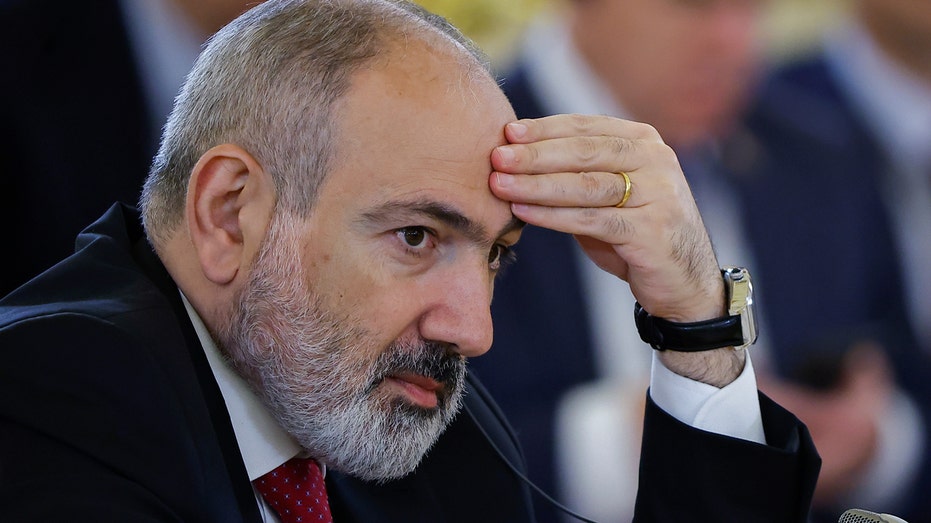UK economy: ‘No one has any clue what’s going to happen,’ says boss of Britain’s fastest-growing business
The chief executive of Britain's fastest-growing company has warned that poor access to finance for small firms risks hamstringing the UK's economic growth, as business owners already struggle with "really high uncertainity in the world".


The chief executive of Britain’s fastest-growing company has warned that poor access to finance for small firms risks hamstringing the UK’s economic growth, as business owners already struggle with “really high uncertainity in the world”.
Speaking at the Ambition A.M. Accelerator in London, Allica Bank’s Richard Davies said he was “hopeful” for the UK’s economic prospects after “a crazy last four or five years”, including Covid-19 and the war in Ukraine.
“We need some stability politically, we need some stability outside the UK,” he said. “I think it’s really hard to run a business when you don’t know what might happen next.”
London-based Allica provides banking services to some 15,000 small and medium-sized enterprises (SMEs). It was named by The Sunday Times as Britain’s fastest-growing private company in June – boasting 536.98 per cent annual sales growth over a three-year period.
Davies, who has headed up the bank for four years, said: “I’m an economist originally by training. I think what I definitely believe is true that no one has any clue what’s going to happen over the next four years.”
Despite falling inflation and a cut in interest rates, a closely-watched survey published on Friday showed consumer confidence in the state of the UK economy fell for the first time in five months.
Davies highlighted the role of “established” SMEs, with between five and 250 staff, in driving growth – noting that they make up a third of the economy and more than half of the UK’s jobs.
Davies, who has previously worked for TSB and HSBC, said high street banks have “neglected” this segment in favour of corporates and the mass market.
“It’s kind of a cash cow business for these banks, and unless they’re forced by competition to improve it, they’re not going to,” he argued.
“Finance helps support job growth, finance helps support investment that supports productivity growth that ultimately drives economic growth.”
Big banks have faced criticism from politicians and lobby groups over the perception that they are pulling back from small business lending, not passing on higher interest rates to firms and unfairly “debanking” SMEs in certain sectors.
Small firms are increasingly turning to alternative providers, which now issue the majority of SME loans.
“Name another mainstream financial market where the majority of provision is not high street banks – there isn’t one. That’s a pretty big success story,” Davies said.
“But I still think there’s a lot of problems about access to finance because there’s so many [providers] out there and it’s hard to know what’s best, which is why we’re personally big fans of the commercial finance broking industry.”
‘We’re really in our infancy’
Davis said Allica’s loan book is currently around £2.6bn, which marks a £600m increase from what it reported at the end of last year. He added that the bank had roughly £3.6bn in deposits, compared to £2.6bn in 2023.
Still, he said the business was unlikely to keep up the kind of growth that has earned it so much attention.
“If you come from a low base you grow very fast, so it’s kind of impossible to sustain the sort of growth rates that won us The Sunday Times thing – and that’s true of any company,” Davies said.
“We feel we’re really in our infancy when it comes to how much we’ve done. I think we look at our own products and services and, depending on which one, would say we’re between five and 30 per cent done of what we think we can do with that. So none of our stuff we internally feel that proud of, actually.”
In April, Allica posted its first annual profit of £16.1m since launching in March 2020. Davies said the bank would roughly double this figure in 2024 with a profit of between £31m and £32m.
“We’re about three per cent penetration of the target customer profile right now, so clearly that can go up quite a bit,” he continued. “We want to be multiples of our current scale.”
Davies said Allica was opening 40 to 50 accounts per week in the first quarter of this year, with this figure rising to roughly 150 per week in August. “Hopefully we can take that further still, beyond that, over the next few months,” he added.



